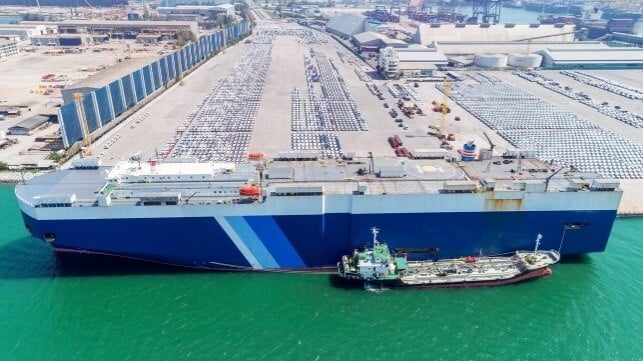Six-Month Pilot to Study Prolonged Use of Biofuels and Associated Costs

A six-month trial is getting underway to study the cost and impact of long-term continuous use of biofuels on large vessels. Japan’s NYK is partnering with the Singapore-based Global Centre for Maritime Decarbonization in what they believe will be a critical piece to further support the adoption of biofuel in the shipping industry.
The organizers highlight that the past decade has seen trials of various biofuel onboard, but they have primarily focused on the combustion characteristics and extent of emission abatement. Biofuel’s compatibility with existing engines and bunkering infrastructure has already been proven making it an attractive “drop-in” green fuel. Data however on the long-term and continuous use of biofuels is far more limited and a critical piece to address the anticipated demand for biofuels.
Sales of biofuels have surged in the past few years with a broad range of shipping companies undertaking the first phases of testing. GCMD highlights that sales rose from negligible levels in 2020 to 1 million metric tons in 2023, yet biofuel still only represents less than two percent of total bunker sales in key hubs such as Singapore and Rotterdam.
Project LOTUS will trial the continuous use of a biofuels blend comprised of 24 percent Fatty Acid Methyl Esters (FAME) and very low sulfur fuel oil (VLSFO) onboard a short-sea vehicle carrier. FAME is a readily available biofuel derived from second-generation feedstocks, like used cooking oil and palm oil mill effluent. Unlike conventional marine fuels, one of the challenges with FAME is that it can be more susceptible to chemical degradation and microbial growth, the by-products of which can corrode shipboard engine systems and/or clog fuel delivery systems. As a result, engine OEMs and classification societies have recommended increasing the frequency of maintenance when using biofuel drop-ins.

that matters most
Get the latest maritime news delivered to your inbox daily.
The pilot will evaluate the potential challenges of prolonged use, such as corrosion of engine systems and valve failures. They will also monitor the fuel looking for signs of degradation and impurities. It will also explore the total cost of ownership of biofuels, covering the cost of fuel and the possible additional maintenance requirements.
The goal is to establish industry guidelines for monitoring engines and equipment when using biofuels. They also plan to recommend mitigation strategies to address issues such as wear from prolonged use. NYK will supply a short-sea vehicle carrier for the tests and VPS will handle the fuel. GCMD will organize the testing and publish the results.
